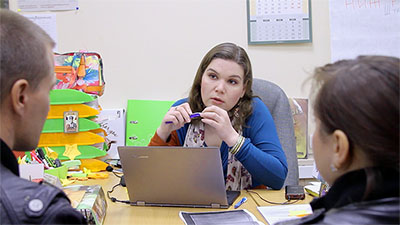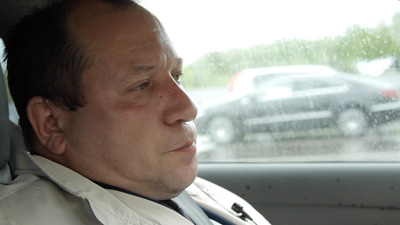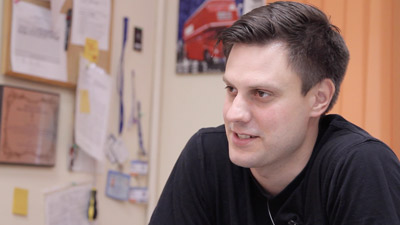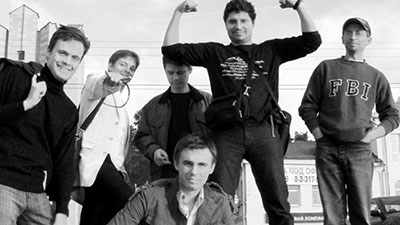Olga Sadovskaya
Works with appellants to the European Court of Human Rights
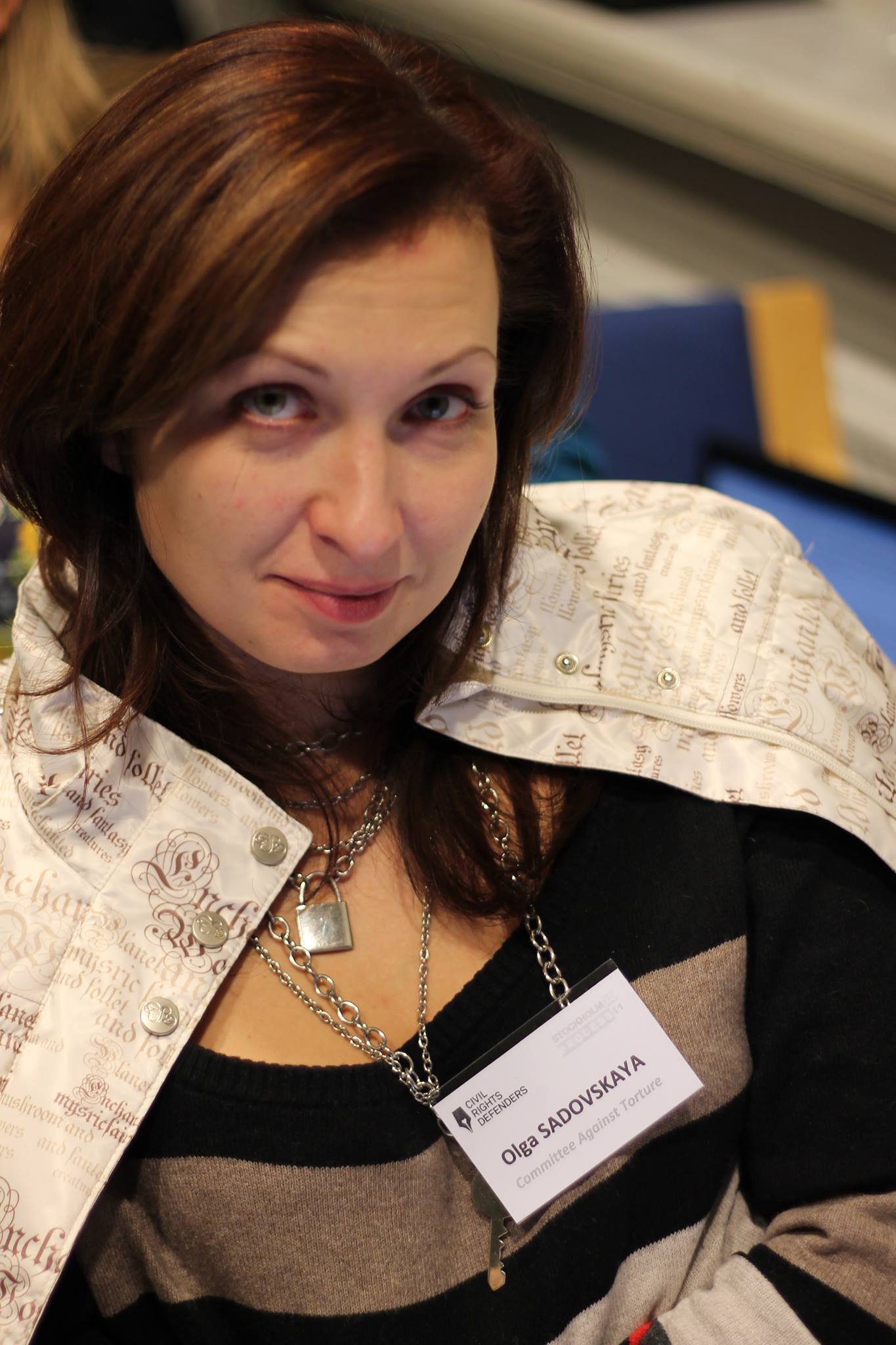
Olga Sadovskaya at a human rights conference
In high school my classmates called me “prosecutor”, because I always fought for justice, debated on issues, admonished, and, in general, I always knew that I wanted to become a lawyer and to defend rights. At least, while I was at school, I thought that this was what public prosecution was for. My father was a policeman before perestroika, and I wholeheartedly believed that the police was there to protect all of us. Father told me stories that influenced my decision to become a prosecutor. Then I entered a university and in my third year I had an internship in the Prosecutor’s Office. There I realized that prosecutors did not help anyone, that it was mostly about paperwork and constant attempts to avoid opening cases.
We had a brilliant professor teaching the Practice of European Court, and I realized that I wanted to work in that field. In my fifth year I came to the Nizhny Novgorod branch of the Human Rights Organization, and they said “We have one new small organization specializing in torture.” Coincidentally, my thesis was about the third article of the Convention, the one related to torture. I came to their office and saw one and a half men in one tiny room. I thought “Good heavens! What a nightmare!” … and decided to stay. This was a fortunate conjuncture. There are very few people among my friends and acquaintances who derive satisfaction from work. Many of them feel content in their position either because of money, or status, or something else. I, on the other hand, have the real satisfaction of my work.
When I came, the team consisted of one psychotherapist, Igor Kalyapin, who was the director, and one more girl. I started as a lawyer, and then it happened so that I began to work with the Committee’s programs and to write grant applications. I was given full freedom of choice, and I happily chose what seemed interesting to me.
Many employees were leaving the organization because after a while they got overburdened with negative information. They were thinking about work even in their free time. We had one colleague who was working with Chechen cases, and this emotional stress, long-term litigation procedures, and hopelessness weighed upon her very heavily… I guess, not everyone is able to cope with this.
«In this life someone is dying, someone is getting sick, someone is being killed, and someone is being beaten. You are here to help those people, not to snivel»
As a rule, people know that torture is being used in this country. However, the society, as opposed to the people who work with this problem professionally, has a distorted image of what is going on. For example, we conducted a street survey, in which we asked “Do you know that sometime people get beaten up by the police?” Nine out of ten responded “Yes, of course.” For most of the people the phrase “beaten up by the police” is not synonymous with the word “torture”. They think that torture is something horrendous, like Samson tearing open the jaws of a lion. And if the police beat someone up, the immediate reaction is usually “Maybe this was for a good reason?” It is all about the wording.
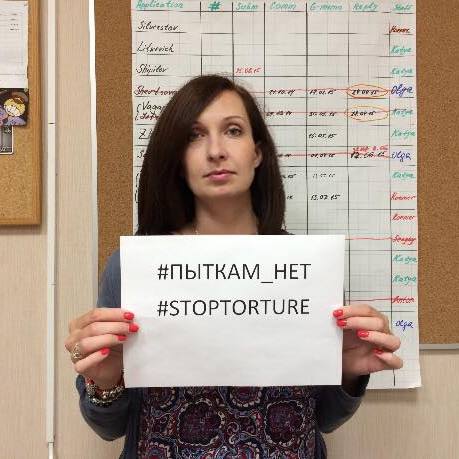
In the office of the Committee for Prevention of Torture
We did this survey in 2007. I do not think that the situation has changed dramatically since then. We managed to include 14 regions; we tried to cover all of Russia. There were a lot of questions in it. The results demonstrated that 21% of respondents faced unmotivated and unlawful aggression on the part of the authorities at least once in their lifetime. Most of the abusers were police officers.
I do not see any reduction in the use of torture, but I do see, to be honest, that torture is becoming less brutal. Ten years ago we had a certain percentage of visitors who got a disability as a result of being subjected to violence. It was simply horrific what those people went through.
Visitors come in waves: when there is a report or an article about us in the media, the number of visitors increases. Sometimes we would hold a public lecture, or some lawyer mentions us in a public meeting, and this boosts the numbers. It varies, but I can say for sure that the overall number of visitors is not decreasing.
There was a time when the number of visitors was growing every month, but we did not assume that torture was being used more frequently. We treated this as a positive tendency, as an increase in the number of people who were prepared to defend their rights. Nowadays, this trend is no longer there. Maybe, it is the case, because a certain saturation point has been reached. The percentage of people ready to fight for their rights has stabilized, and now it is only that percentage that is coming to us.
«Nowadays, they torture less brutally, but the number of deaths is approximately the same; it has not changed»
The police reform did not bring any changes. It was pure rebranding and nothing else. We organized trainings, and it happened so that during the first half we worked with what back then was called “militia”, while the second half was already attended by freshly inaugurated police. We talked with policemen, and they told us that their superiors used this re-attestation to get rid of those employees who they did not like. The reform did not achieve anything else. It was announced that around 20% did not pass the examination, and, allegedly, everything is fine now. In reality, they simply found a good way to filter out the dissatisfied and the disagreeable.
